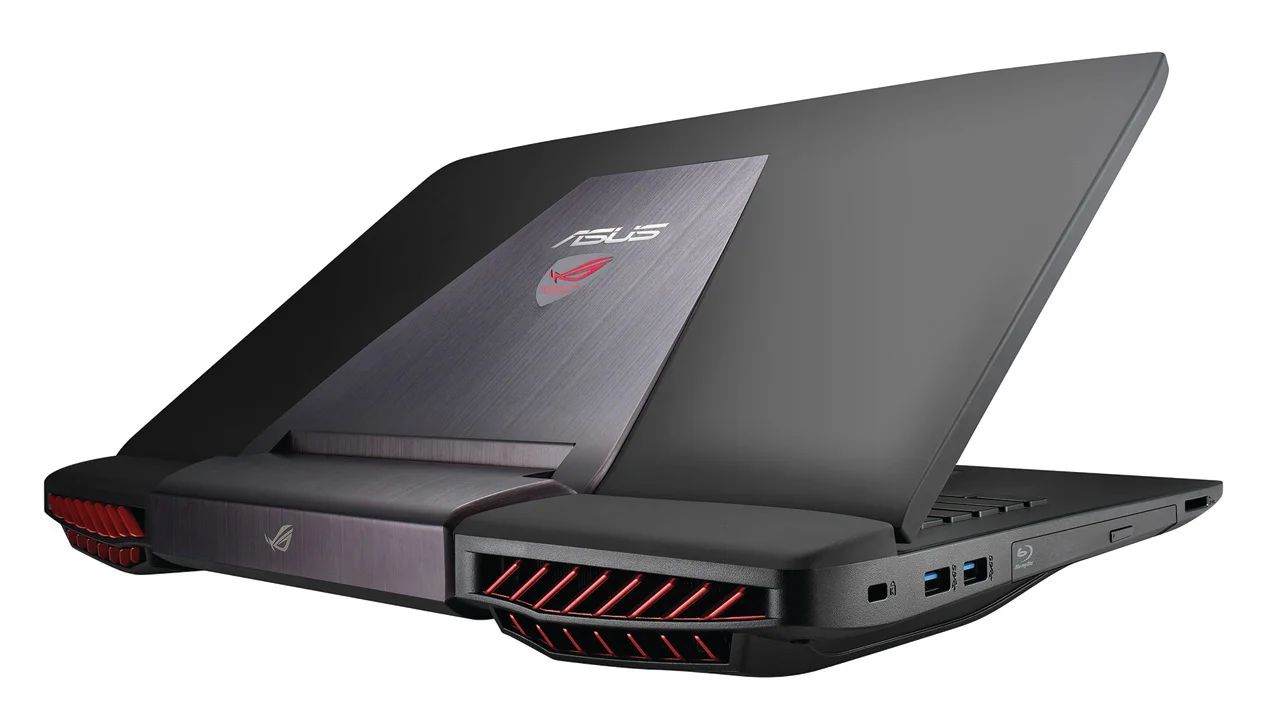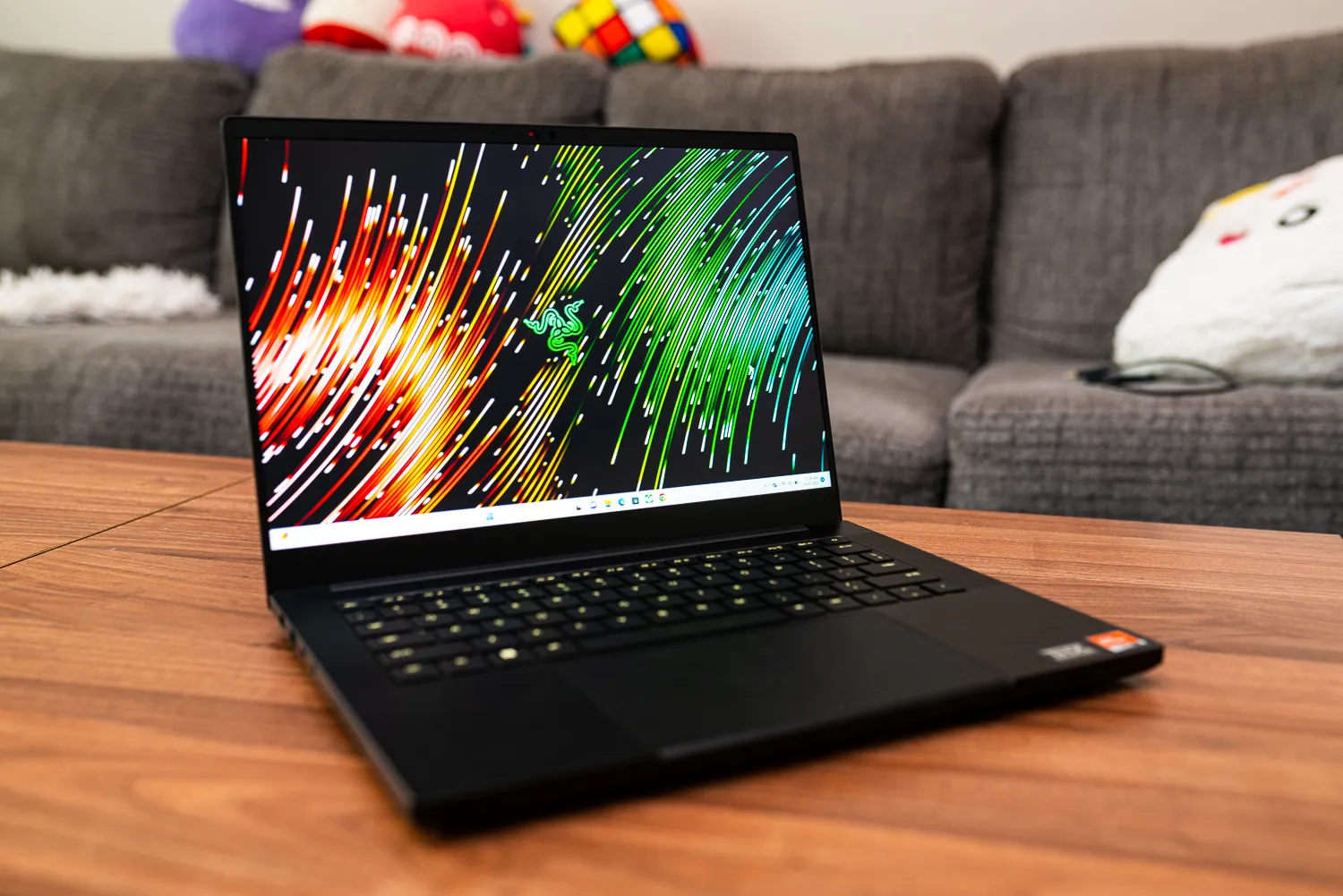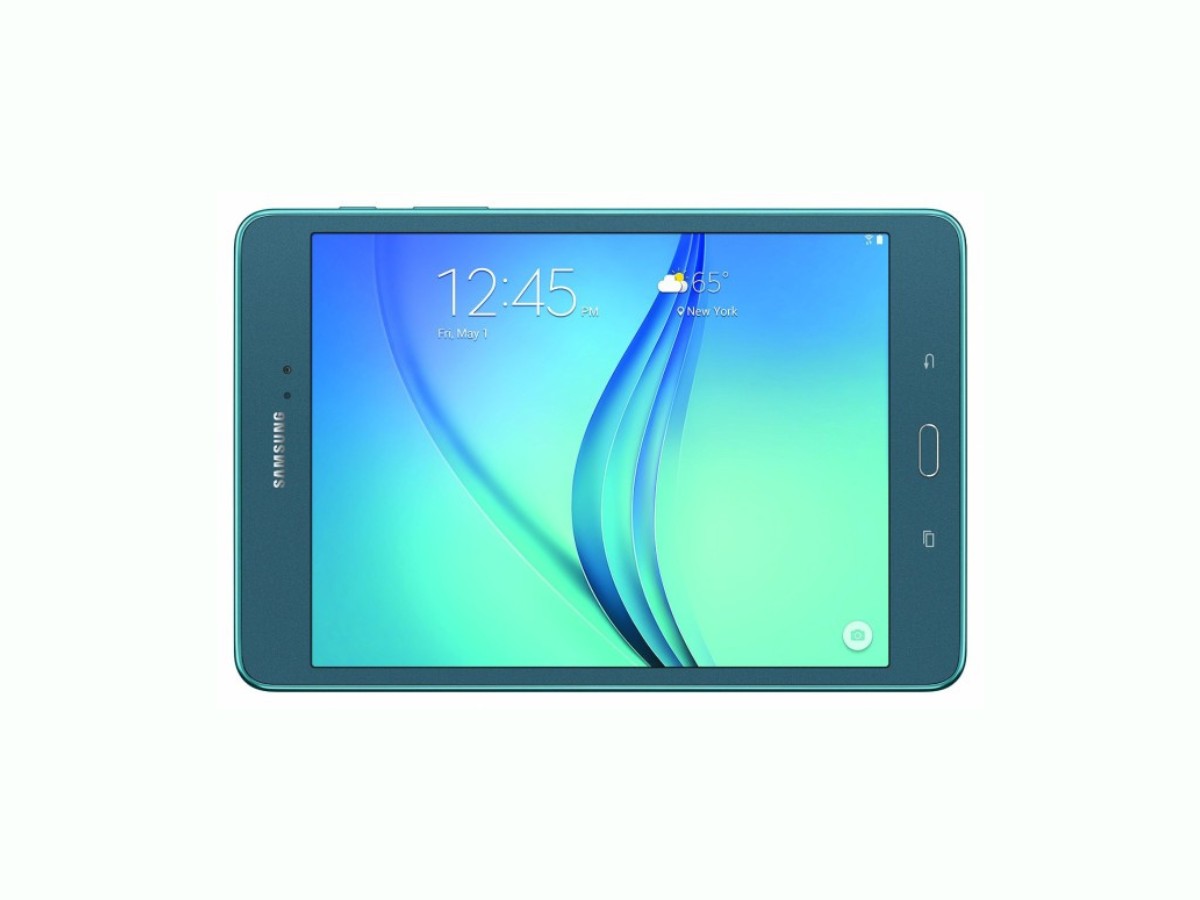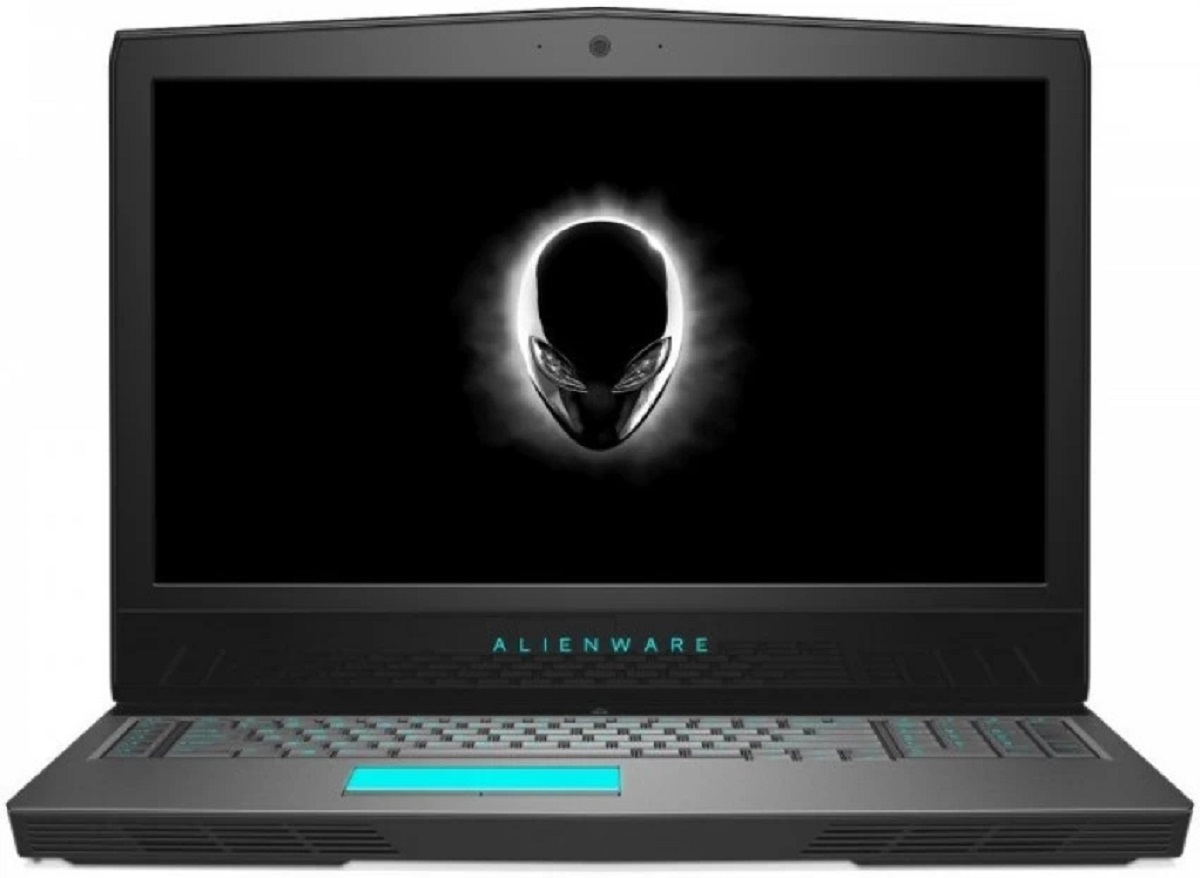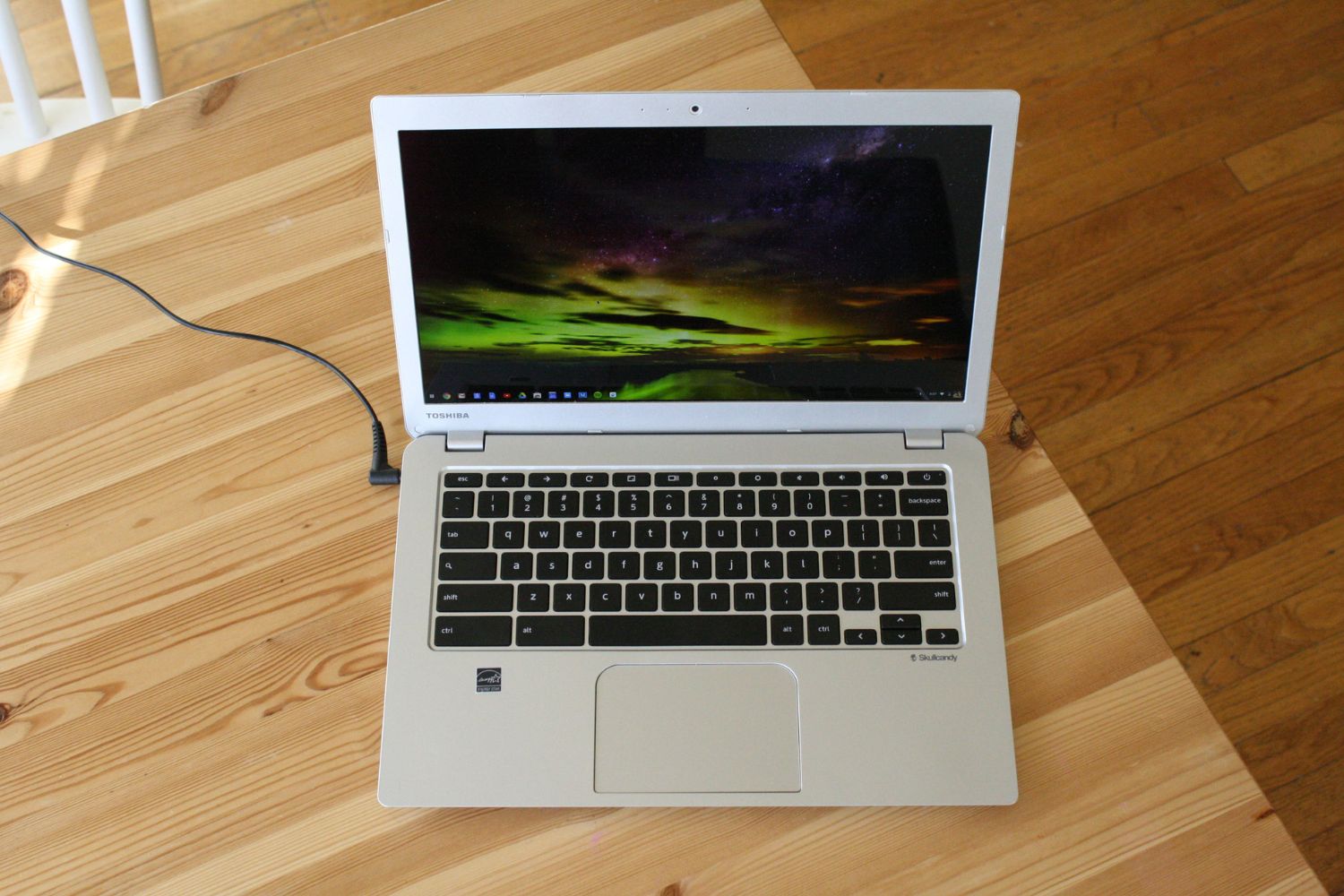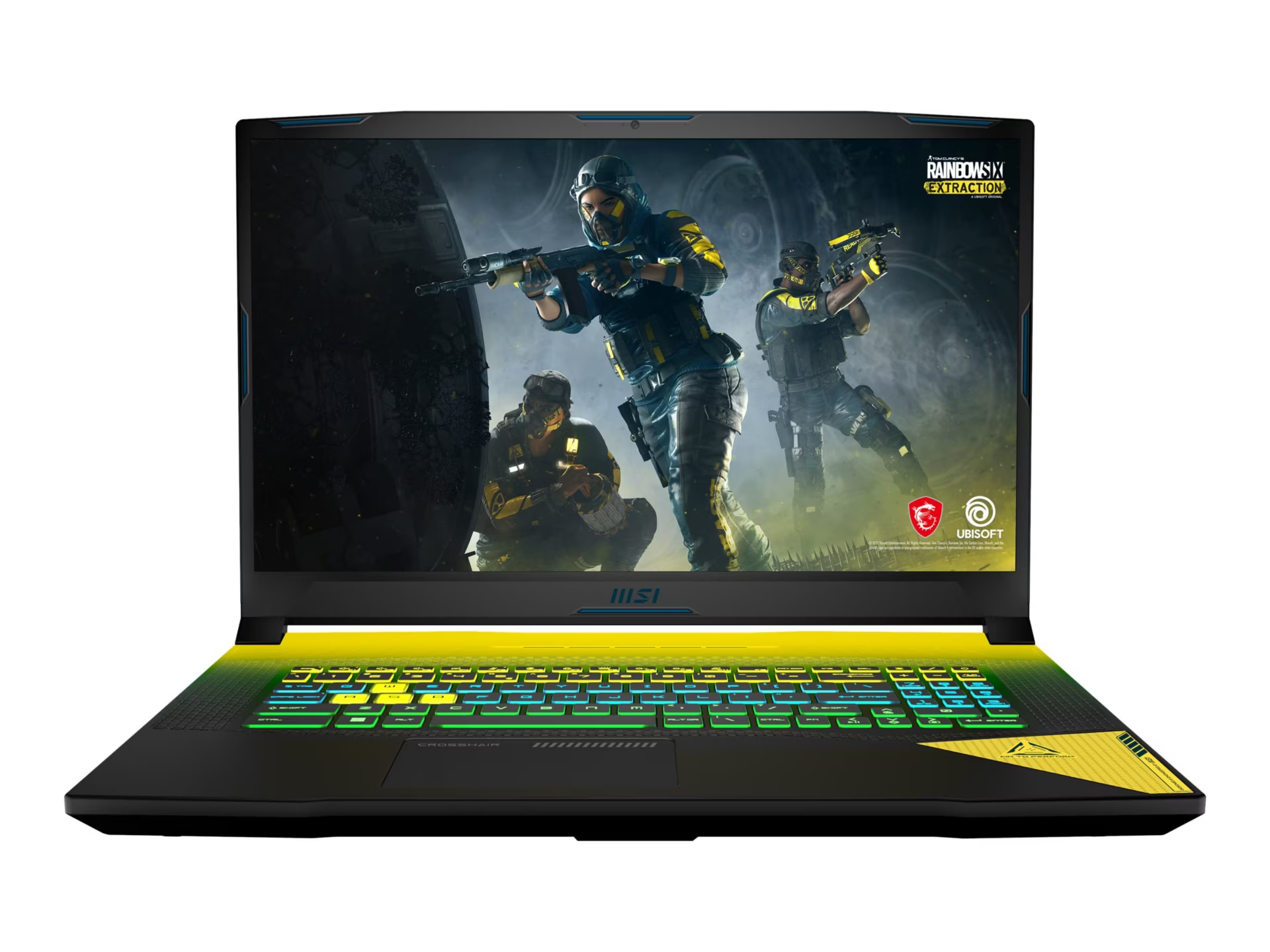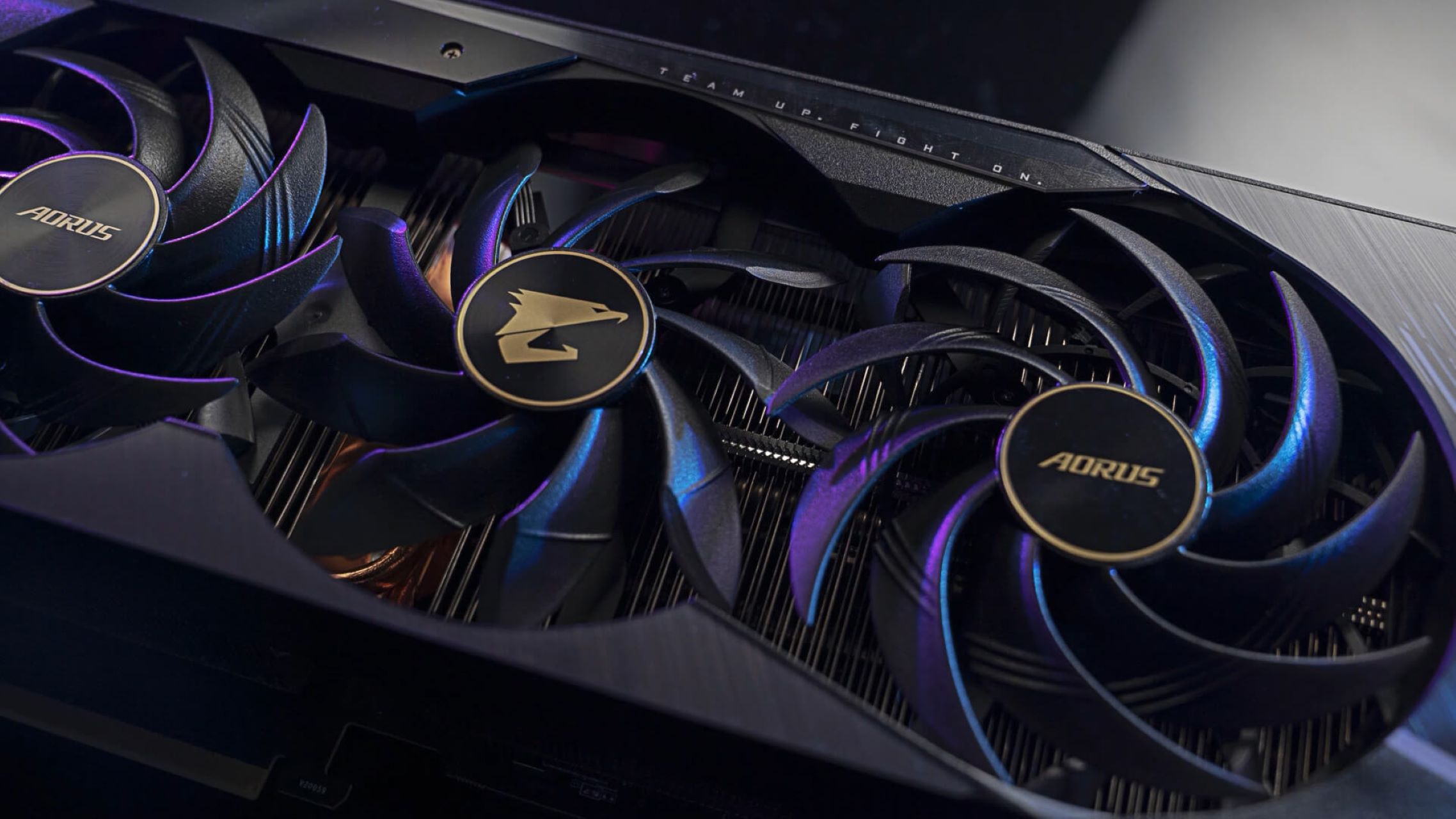Introduction
Gaming laptops have become increasingly popular among gamers, as they offer a convenient and portable way to enjoy high-quality gaming experiences. However, with the ever-evolving technology and multiple options available in the market, choosing the right gaming laptop can be a challenge.
When it comes to gaming laptops, there are several factors to consider, such as the processor, graphics card, RAM, storage capacity, display quality, battery life, cooling system, design, build quality, and price range. Each of these elements plays a crucial role in determining the performance and overall gaming experience.
In this article, we will explore each of these factors in detail and provide insights into what you should look for when choosing a gaming laptop. Whether you are a casual gamer looking for a budget-friendly option or a hardcore enthusiast seeking top-of-the-line specifications, this guide will help you make an informed decision.
It’s worth noting that technology is constantly advancing, and newer models are released frequently. However, by understanding the key components and features that make a gaming laptop stand out, you can make a well-informed choice that will serve your gaming needs for years to come.
So, let’s dive into the world of gaming laptops and discover the factors that will help you select the perfect device for an immersive gaming experience.
Factors to Consider
When looking for the perfect gaming laptop, there are several crucial factors that you should consider. By understanding these factors, you can prioritize what features are most important to you and narrow down your options accordingly.
One of the primary factors to consider is the processor. The processor acts as the brain of your gaming laptop and is responsible for executing tasks and running games smoothly. Look for a laptop with a powerful processor that can handle the demands of modern gaming.
The next important factor is the graphics card. A dedicated graphics card plays a vital role in rendering high-quality graphics and delivering smooth gameplay. Opt for a gaming laptop with a powerful graphics card to ensure an immersive gaming experience.
Another factor to consider is the amount of RAM (Random Access Memory) in the laptop. Having ample RAM allows for seamless multitasking and improves game performance. Aim for at least 8GB of RAM, but consider higher options for future-proofing your device.
Storage capacity is also crucial when it comes to gaming laptops. Look for a laptop with a solid-state drive (SSD) rather than a traditional hard disk drive (HDD). SSDs offer faster loading times and improved overall system performance.
The display quality is another aspect to consider. A high-resolution display with a fast refresh rate and good color accuracy will enhance your gaming experience. Look for a laptop with a display that meets your preferences for visual clarity and vibrant colors.
Battery life is important, especially if you plan to use your gaming laptop on the go. While gaming laptops tend to consume more power, look for a laptop that offers reasonable battery life, allowing you to enjoy gaming sessions without constantly searching for an outlet.
The cooling system of a gaming laptop is often overlooked but plays a crucial role in preventing overheating during intense gaming sessions. Look for laptops that have efficient cooling systems and multiple heat vents to ensure optimal performance and longevity.
The design and build quality should also be considered, as a sturdy and well-constructed laptop is essential for durability and long-lasting use. Additionally, a comfortable keyboard and touchpad can greatly enhance your gaming experience.
Lastly, your budget is a significant factor in selecting a gaming laptop. Determine your budget range and look for laptops that offer the best specifications and features within that price range.
By evaluating these factors and determining your preferences, you will be better equipped to make an informed decision and choose a gaming laptop that meets your specific needs and budget.
Processor
The processor is one of the most crucial components to consider when choosing a gaming laptop. It acts as the brain of the system, executing and processing tasks efficiently. A powerful processor ensures that your laptop can handle the demanding requirements of modern games smoothly.
When it comes to processors, there are two main players in the market: Intel and AMD. Intel processors, particularly those from the Core i5 and Core i7 series, have long been renowned for their strong performance in gaming laptops. These processors offer a balance between power and affordability, making them a popular choice among gamers.
On the other hand, AMD processors, particularly their Ryzen series, have gained significant popularity in recent years. AMD processors provide an excellent value for money, often offering comparable performance to their Intel counterparts at a lower price point. They are especially advantageous for multitasking and content creation alongside gaming.
The performance of a processor is determined by several factors, including its clock speed, the number of cores, and the generation it belongs to. Higher clock speeds and more cores generally result in better performance, as they allow for faster processing and smoother multitasking.
For most gaming needs, a quad-core processor should suffice. However, if you plan on streaming or content creation alongside gaming, consider opting for a laptop with a higher-core count processor, such as a six-core or eight-core setup.
It’s also worth mentioning that the generation of the processor can impact its performance. Newer generations generally bring improvements in power efficiency and performance. Look for at least a 9th or 10th generation Intel Core processor or a 4th generation Ryzen processor.
Ultimately, the choice between Intel and AMD processors depends on your specific needs and budget. Both offer excellent performance, so it’s important to consider factors such as your gaming requirements, multitasking needs, and budget when making a decision.
Remember, a powerful processor is vital for a smooth gaming experience, so choose wisely to ensure your gaming laptop can handle the demands of the latest games and provide an enjoyable gaming session without any lag or stuttering.
Graphics Card
The graphics card, also known as the GPU (Graphics Processing Unit), is one of the most important components to consider when choosing a gaming laptop. It is responsible for rendering and displaying high-quality graphics, ensuring smooth gameplay and immersive visuals.
When it comes to gaming laptops, there are two main manufacturers of graphics cards: NVIDIA and AMD. NVIDIA’s GeForce series is widely regarded as the gold standard for gaming, offering excellent performance and a wide range of options to suit different budgets.
NVIDIA’s graphics cards are divided into different tiers, with the higher-tier models providing better performance and more advanced features. The GeForce GTX and RTX series are particularly popular among gamers, with the RTX series featuring advanced technologies such as real-time ray tracing and DLSS (Deep Learning Super Sampling).
AMD’s Radeon series graphics cards have also made significant strides in recent years, offering competitive performance and value. The Radeon RX series provides excellent gaming performance at affordable price points, making them a popular choice for budget-conscious gamers.
When choosing a graphics card, there are a few key factors to consider. The first is the VRAM (Video Random Access Memory) capacity. A higher VRAM allows for better texture quality and greater graphical detail. Aim for a minimum of 4GB or 6GB VRAM, depending on your budget.
The core clock speed and the number of CUDA cores (in NVIDIA cards) or Stream Processors (in AMD cards) also play a role in determining graphics card performance. Higher clock speeds and more cores generally result in better performance, allowing for smoother gameplay and faster rendering.
Another feature to consider is the G-Sync or FreeSync technology. These technologies synchronize the display’s refresh rate with the GPU’s output, reducing screen tearing and providing a smoother gaming experience. While not essential, they can greatly enhance your gaming visuals.
Lastly, it’s important to consider the power requirements of the graphics card. Higher-end graphics cards tend to consume more power. Ensure that your gaming laptop has an adequate power supply and cooling system to support the graphics card’s requirements.
Ultimately, the choice of graphics card will depend on your gaming preferences, budget, and desired graphics quality. Take the time to research and compare different options to find the best graphics card that meets your gaming needs and provides a visually stunning gaming experience.
RAM
RAM, or Random Access Memory, is an essential component to consider when choosing a gaming laptop. It plays a crucial role in determining the laptop’s ability to handle multitasking and smoothly run games and applications.
When it comes to gaming, it is recommended to have a minimum of 8GB of RAM. This allows for smooth gameplay and seamless switching between applications. However, if you plan on running resource-intensive games or multitasking with other applications, consider opting for 16GB or even 32GB of RAM.
The amount of RAM directly impacts the laptop’s ability to store and access game data quickly. With more RAM, the laptop can store and retrieve information faster, resulting in smoother gameplay and reduced loading times. Additionally, having ample RAM ensures that your laptop can handle multiple processes simultaneously without performance issues.
It’s worth noting that RAM speed, measured in megahertz (MHz), also affects the overall performance. Higher RAM speeds generally result in faster data transfer and better system responsiveness. However, the actual impact on gaming performance may be minimal compared to other factors such as the processor and graphics card.
In terms of RAM type, most modern gaming laptops utilize DDR4 RAM modules. DDR4 RAM offers higher bandwidth and lower power consumption compared to its predecessor, DDR3. Some high-end laptops may even offer DDR4X or DDR5 RAM, which provide even faster speeds and improved performance.
When it comes to upgrading RAM, it’s important to check if the laptop allows for RAM upgrades. Some laptops have soldered RAM that cannot be upgraded, while others have accessible RAM slots for easy upgrades. If you anticipate needing more RAM in the future, it’s wise to choose a laptop that allows for RAM expansion.
Overall, having sufficient RAM is crucial for a smooth gaming experience. Opt for at least 8GB of RAM but consider higher capacities if you plan on multitasking or running more demanding games. Also, make sure to check the RAM upgrade options available for the laptop to ensure future scalability.
Storage
Choosing the right storage solution is essential when selecting a gaming laptop. The storage capacity and type directly impact the speed at which games and applications load, as well as the overall responsiveness of the system.
There are two main types of storage options available in gaming laptops: hard disk drives (HDDs) and solid-state drives (SSDs). HDDs provide larger storage capacities at a lower cost per gigabyte, but they are slower in terms of data access and boot-up times.
On the other hand, SSDs offer much faster read and write speeds, resulting in snappier performance and quicker loading times. While SSDs typically have smaller storage capacities compared to HDDs, they are becoming more affordable and offer a great balance between speed and storage capacity.
It is recommended to choose a gaming laptop with an SSD as the primary storage drive, as it significantly enhances the overall gaming experience. You can opt for a laptop with a smaller SSD for the operating system and frequently played games, while utilizing an external HDD for additional storage capacity if needed.
In recent years, NVMe (Non-Volatile Memory Express) SSDs have gained popularity for their even faster speeds and improved performance compared to traditional SATA SSDs. NVMe SSDs utilize the PCIe interface for faster data transfer, resulting in lightning-fast read and write speeds.
The storage capacity you choose will depend on your gaming needs and budget. While some gamers may require a large amount of storage for their game library, others might prioritize speed and opt for a smaller capacity SSD.
If you find that your storage needs exceed the laptop’s capacity, consider a laptop with upgradable storage options or utilize external storage devices such as portable HDDs or external SSDs.
Ultimately, choosing the right storage solution is crucial for optimal gaming performance. Having an SSD, especially one with NVMe technology, ensures speedy game loading times and a more responsive system overall. Consider your storage needs and prioritize speed when selecting a gaming laptop.
Display
The display of a gaming laptop is a crucial factor to consider, as it directly impacts your gaming experience. A high-quality display not only enhances visual clarity but also immerses you in the game world with vibrant colors and smooth visuals.
The two key aspects to consider when it comes to the display are resolution and refresh rate. The resolution refers to the number of pixels on the screen, determining the level of detail you can see. Higher resolutions, such as 1080p (Full HD) or 1440p (QHD), offer more clarity and sharpness, but also require more powerful hardware to run games at higher settings. 4K resolution (3840×2160) provides the highest level of detail, but it can significantly impact performance and may not be necessary for all gamers.
Refresh rate refers to the number of times the display refreshes per second and is measured in Hertz (Hz). A higher refresh rate, such as 144Hz or 240Hz, provides smoother visuals with less motion blur, resulting in a more fluid gaming experience. However, a higher refresh rate requires more powerful hardware to maintain higher frame rates in games.
The panel type is another important consideration. The two most common panel types are IPS (In-Plane Switching) and TN (Twisted Nematic). IPS panels generally offer better color reproduction, wider viewing angles, and more accurate color representation. They are suitable for gamers who prioritize visual quality and wider viewing angles. TN panels, on the other hand, tend to have faster response times and higher refresh rates. They are often preferred by competitive gamers who prioritize fast-paced gameplay.
HDR (High Dynamic Range) is another feature to consider, as it enhances the overall visual experience by providing a wider range of colors, deeper blacks, and brighter highlights. HDR technology can make games look more vibrant and lifelike, but keep in mind that not all games and laptops support HDR.
Size and portability are also factors to consider. Gaming laptops typically range from 15 to 17 inches, with larger displays offering a more immersive gaming experience but sacrificing portability. It’s important to balance your preference for screen size with the laptop’s overall weight and portability.
Lastly, consider the overall build quality and bezel size. A laptop with slim bezels allows for a larger screen-to-body ratio, resulting in a more immersive viewing experience. Additionally, look for displays that offer anti-glare coatings to minimize reflections and provide better visibility in different lighting conditions.
Ultimately, the display of a gaming laptop significantly impacts your gaming experience. It’s important to choose a display that meets your preferences for resolution, refresh rate, panel type, and size, ensuring that you can fully enjoy your favorite games with stunning visuals and smooth gameplay.
Battery Life
Battery life is an important consideration when choosing a gaming laptop, especially if you plan on gaming on the go or in situations where you don’t have easy access to a power outlet. While gaming laptops are known for their power-hungry components, advancements in technology have led to improvements in battery efficiency.
Gaming laptops typically have larger batteries to support the high-performance hardware. However, due to the high power demands of gaming, it’s unrealistic to expect the same battery life as you would get from a non-gaming laptop.
The actual battery life of a gaming laptop depends on various factors, including the hardware configuration, display settings, usage patterns, and the intensity of the games being played. A laptop with powerful components, such as a high-end processor and dedicated graphics card, may consume more power and have shorter battery life.
On average, gaming laptops typically offer around 2 to 4 hours of battery life during gaming sessions. However, some laptops with efficient battery management systems and technologies, such as NVIDIA’s Optimus or AMD’s PowerXpress, can provide extended battery life by utilizing integrated graphics for less demanding tasks.
If battery life is a top priority for you, consider laptops with features like advanced power-saving modes, adjustable performance profiles, and software that allows for fine-tuning power settings. Lowering the display brightness and closing unnecessary applications can also help conserve battery life during gaming sessions.
It’s worth noting that battery life can vary greatly depending on usage. For non-intensive tasks such as web browsing, document editing, or watching videos, gaming laptops can usually provide longer battery life, often ranging from 5 to 8 hours.
To ensure an uninterrupted gaming experience, it’s always a good idea to have a power outlet nearby or carry a charger with you, especially when you know you’ll be gaming for extended periods without access to power.
In summary, gaming laptops generally have shorter battery life compared to non-gaming laptops, due to the power demands of gaming components. It’s important to consider your usage patterns and prioritize battery life if you plan on gaming on the go. Utilizing power-saving options, adjusting performance profiles, and managing software settings can help extend battery life during gaming sessions.
Cooling System
The cooling system is a vital aspect to consider when choosing a gaming laptop, as gaming sessions can generate a significant amount of heat that needs to be efficiently dissipated to ensure optimal performance and stability.
Gaming laptops are built with powerful components that generate heat, including high-performance processors and graphics cards. If this heat is not effectively managed, it can lead to thermal throttling, where the performance of the laptop is reduced to prevent overheating.
A robust cooling system consists of several components, including heat sinks, heat pipes, fans, and ventilation systems. Heat sinks and heat pipes are responsible for absorbing heat from the components, while fans help to disperse the heat and maintain a stable temperature.
When choosing a gaming laptop, consider models that have multiple heat sinks and heat pipes to distribute the heat evenly and efficiently across the system. This helps prevent hotspots and ensures that no single component is at risk of overheating.
The number and quality of fans are also crucial. Look for laptops with dual or even triple fans that can efficiently circulate air and dissipate heat. Laptops with larger fan blades and higher RPM (revolutions per minute) can generate greater airflow, resulting in more effective cooling.
Additionally, consider laptops with effective ventilation systems and strategically placed vents. Proper ventilation allows for better air intake and exhaust, helping to maintain lower temperatures and prevent the accumulation of hot air inside the laptop.
Some high-end gaming laptops also come equipped with advanced cooling technologies, such as vapor chambers or liquid cooling systems. These technologies provide superior heat dissipation and can handle even the most demanding gaming sessions.
It’s important to note that a robust cooling system also requires proper maintenance. Regularly cleaning the laptop’s vents and fans can prevent dust buildup, which can hinder airflow and lead to higher temperatures. Investing in a cooling pad or an external laptop cooling solution can also help improve airflow and reduce the laptop’s temperature during intense gaming sessions.
In summary, a well-designed cooling system is essential for a gaming laptop to maintain optimal performance and prevent overheating. Look for models with multiple heat sinks, effective fans, and proper ventilation to ensure efficient heat dissipation. Regular maintenance and the use of external cooling solutions can also help improve the laptop’s overall cooling performance.
Design and Build Quality
The design and build quality of a gaming laptop not only contribute to its aesthetics but also play an important role in its durability, portability, and overall user experience. When choosing a gaming laptop, it’s essential to consider these factors to ensure a satisfying and long-lasting gaming experience.
The design of a gaming laptop can vary greatly, ranging from sleek and understated to bold and aggressive. The choice of design is subjective and largely depends on personal preference. However, it’s important to consider practical aspects such as the placement of ports, the ergonomics of the keyboard and touchpad, and the overall weight and portability of the laptop.
In terms of build quality, look for laptops that are well-constructed and use high-quality materials. Metal chassis, such as aluminum or magnesium alloy, offer better durability and structural integrity compared to plastic. Additionally, a sturdy build ensures that the laptop can withstand the rigors of daily use and potentially survive accidental bumps or drops.
Consider the keyboard and touchpad design, as a comfortable and responsive keyboard is crucial for long gaming sessions. Look for backlit keyboards, preferably with customizable RGB lighting, which not only add flair but also enhance visibility in dimly lit environments. A well-designed touchpad with smooth and accurate tracking can also improve the overall user experience.
The display hinge is another important aspect to consider. A sturdy and well-designed hinge allows for easy adjustment of the screen angle and ensures that it stays in place without wobbling during use.
Port selection is also critical for connectivity and convenience. Look for laptops that offer a good range of ports, including USB 3.0 or USB-C ports, HDMI or DisplayPort for external displays, and an Ethernet port for stable internet connectivity.
Additionally, factors such as speaker quality and audio output should not be overlooked. Good sound quality enhances the gaming experience, and laptops with high-quality speakers or support for external audio devices can greatly enhance audio immersion.
Ultimately, the design and build quality of a gaming laptop contribute to its overall user experience, durability, and comfort during gaming sessions. Consider factors such as design aesthetics, keyboard and touchpad ergonomics, build materials, port selection, and audio quality to ensure that the laptop meets your requirements for both functionality and enjoyment.
Price Range
When it comes to gaming laptops, price range is an important factor to consider. Gaming laptops can vary greatly in price, depending on the hardware specifications, brand, design, and build quality. It’s crucial to set a budget and determine how much you are willing to spend on a gaming laptop.
Lower-priced gaming laptops typically offer entry-level or mid-range specifications, which can still run most games but may not handle high graphics settings or the latest AAA titles as smoothly as higher-priced models. These laptops are suitable for casual gamers or those on a tight budget.
Mid-range gaming laptops offer a good balance between price and performance. They often feature more powerful processors, dedicated graphics cards, and higher amounts of RAM and storage. These laptops can handle a wide range of games at decent graphics settings and are ideal for most gamers.
High-end gaming laptops, at the top of the price range, offer top-of-the-line specifications and cutting-edge features. They are designed for gamers who prioritize maximum performance, high-resolution displays, advanced cooling systems, and premium build quality. These laptops can handle the most demanding games, VR (virtual reality) applications, and content creation tasks.
While it’s tempting to go for the most powerful and expensive gaming laptop available, it’s essential to consider your specific gaming needs. Evaluate the types of games you play, the desired graphics settings, and future upgrade possibilities beforehand. You may find that a mid-range gaming laptop can meet your requirements without breaking the bank.
It’s also worth considering the long-term investment when choosing a gaming laptop. Technology evolves rapidly, and new models are released frequently. A high-end gaming laptop may provide better longevity and future-proofing, while a lower-priced model may require upgrades or replacement sooner.
Ultimately, the price range for a gaming laptop depends on your budget and gaming requirements. Set a budget, research different models within that range, and compare the specifications and features offered. This will help you find the best balance between price and performance, ensuring that you get the most value out of your investment.
Gaming Laptop Recommendations
Now that we have discussed the crucial factors to consider when choosing a gaming laptop, let’s explore some recommended options that cater to different price ranges and gaming needs. These recommendations provide a starting point for your search, but keep in mind that the market is constantly evolving, and new models may emerge.
Budget-Friendly:
- Acer Nitro 5: This affordable gaming laptop offers decent performance with options for both AMD and Intel processors, dedicated graphics cards, and a range of display sizes. It provides excellent value for budget-conscious gamers.
- ASUS TUF Gaming A15: This mid-range gaming laptop boasts the latest AMD Ryzen processors, NVIDIA graphics cards, and a high refresh rate display. It offers a good balance between price and performance for casual and mid-level gamers.
Mid-Range:
- MSI GS66 Stealth: With its sleek design, powerful Intel processors, NVIDIA RTX graphics cards, and advanced cooling system, this gaming laptop offers a great combination of performance and portability for mid-range gamers.
- Lenovo Legion 5: Featuring AMD Ryzen processors, NVIDIA GTX/RTX graphics cards, and a solid build quality, this laptop delivers excellent gaming performance at a competitive price point.
High-End:
- Alienware M15 R4: Alienware laptops are known for their top-tier performance and premium build quality. The M15 R4 features powerful Intel processors, NVIDIA RTX graphics, a high-refresh-rate display, and customizable RGB lighting.
- ROG Zephyrus S17: This high-end gaming laptop from ASUS ROG offers a perfect blend of power and portability. It combines an Intel processor, NVIDIA RTX graphics, a stunning display, and a unique, innovative design.
These are just a few examples of gaming laptops available in different price ranges. It’s essential to research and compare specifications, reviews, and user feedback to find the best match for your gaming preferences and budget.
Remember that gaming laptop recommendations may change over time as new models are released, technology advances, and pricing fluctuations occur. Consider your specific gaming needs, desired performance, and budget before making a final decision.
Conclusion
Choosing the right gaming laptop is a critical decision that can greatly enhance your gaming experience. By considering factors such as the processor, graphics card, RAM, storage, display, battery life, cooling system, design, build quality, and price range, you can make an informed decision that suits your gaming needs and budget.
Remember that each of these factors plays a crucial role in determining the performance and overall gaming experience of a laptop. Consider your gaming preferences, whether you prioritize high-resolution graphics, fast refresh rates, or portability, and find a balance that fits your requirements.
There is a wide range of gaming laptops available on the market, catering to different price points and gaming needs. From budget-friendly options to high-end powerhouses, there is a laptop out there for every type of gamer.
Do thorough research, read reviews, and compare specifications to find the best gaming laptop that meets your specific requirements. Keep in mind that technology is constantly advancing, and newer models with improved specifications are regularly released. Consider future-proofing your purchase by selecting a laptop that offers upgrade options and can handle the demands of future games and software.
Lastly, take care of your gaming laptop by practicing regular maintenance, such as cleaning the vents and fans, and using external cooling solutions if necessary. Proper maintenance will help prolong the lifespan of your laptop and ensure optimal performance for years to come.
Now armed with the knowledge of what to look for in a gaming laptop, explore the market, narrow down your choices, and make a well-informed decision. Get ready to immerse yourself in the world of gaming and enjoy hours of thrilling gameplay on a laptop that meets your gaming needs perfectly!







